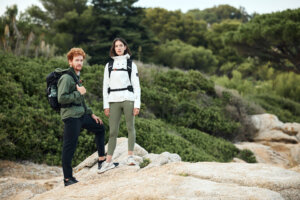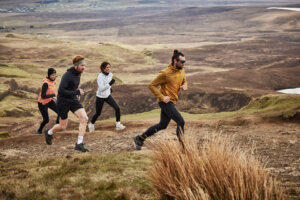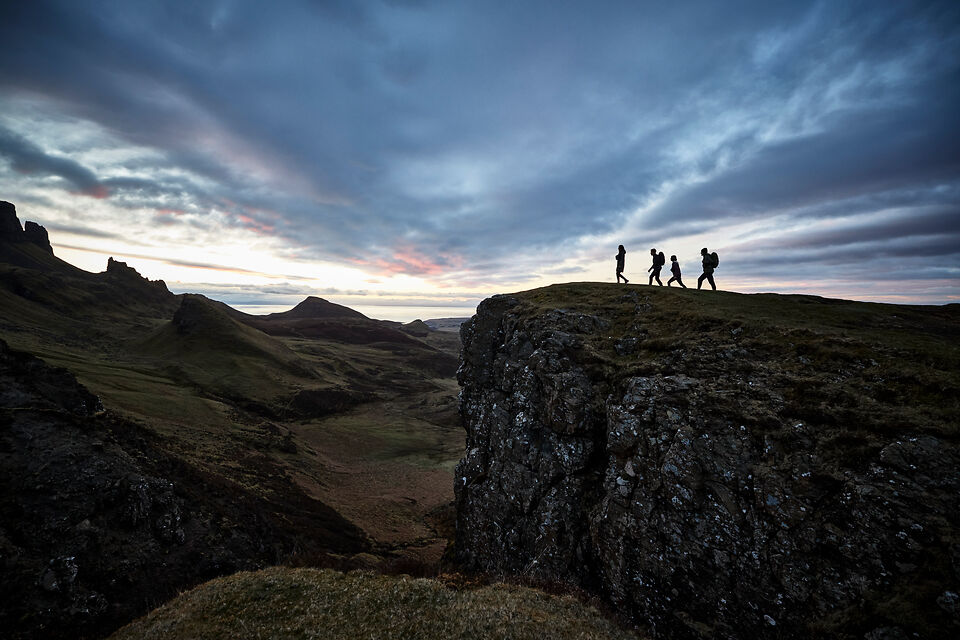Sustainability often comes with complex challenges – but it’s here to stay. Katja Mendel, Retail Format Manager of the Outdoor division at SPORT 2000 GmbH, explains why sustainability is far more than just a buzzword. In the interview, she offers insights into why sustainability is of key importance to the outdoor sector and explains how SPORT 2000 GmbH is implementing specific measures to support its specialist retailers.
What does sustainability mean for you personally and how significant is it in your job?
Katja Mendel: These days, I prefer not to use the word “sustainability”. It puts a lot of people off because they assume it entails a lot of extra work as well as significant restrictions. For me personally, however, it means taking responsibility and actively working towards a better future. Sustainability also has a key role to play for me professionally in the area of outdoor sports. Together with our retailers, we are committed to ensuring our customers are able to enjoy the best possible time outdoors – whether that’s running, hiking or other outdoor activities.

We get a lot of energy from exercising in nature. We should be protecting it so we can enjoy it for many years to come. What is your take on sustainability in outdoor sports?
Katja Mendel: I view outdoor sports as a form of sustainability. Every time you exercise outdoors, you’re doing something sustainable for your own body. Those who are passionate about the outdoors are also known for being environmentally aware. They do their bit to protect nature, for example by taking their rubbish home with them from the top of the mountain and disposing of it correctly. Since outdoor sports take place in nature, the outdoor sector is very closely associated with the environment and began, early on, to focus on using natural materials in the clothing.
Are sustainable materials already being used in outdoor clothing and equipment?
Katja Mendel: Yes, but this is a huge and very complex issue. While some brands are already using recycled materials and natural fabrics, the finishing of materials and their processing, in particular, frequently comes under criticism. It’s important that products are not just environmentally friendly but that they are also robust, durable and multifunctional.
The subject of sustainability also includes the issue of supply chains and production. How is this organised in outdoor sports?
Katja Mendel: At the moment, a few specialist products can only be made in Asia as this is where the relevant expertise is to be found. Brands rely on audits and certificates to guarantee production standards and working conditions at a local level. You can see the lengths brands are going to here, in terms of ESG (Environmental, Social, Governance), to bring about positive change. Brands do also terminate partnerships with producers because they fail to meet specific standards. In these cases, however, the brands always operate directly. To ensure our specialist retailers are well informed and do not become confused by the large number of quality seals, we have compiled a summary of seals together with the Hohenstein Institute. This explains what each of the seals stands for.

In general, how relevant is sustainability for end consumers?
Katja Mendel: Sustainability is much more relevant for end consumers than is often communicated. How and where products are manufactured is very important to consumers. Many people specifically search for functional products which meet their needs and which have been produced sustainably – whether that’s for traveling with minimal luggage or for use in various sports.
Lots of sportspeople associate personal experiences with their sports products. If an item gets damaged, is it possible to have it repaired?
Katja Mendel: Faults can occur, even if users regularly maintain their items and treat them with care. Thanks to a range of different repair services, many products can be repaired so they are ready for another life cycle. In this area, we work with an external service provider who repairs and recycles the products. This offer is currently limited to textiles, but we are also working on integrating hardware. From the middle of August, the Home of Experts service will be available to our SPORT 2000 retailers in Germany and the Netherlands, and planning for international expansion is under way.
The Home of Experts service sounds like a great initiative for counteracting people’s fixation on buying new. But often, if products are being repaired, no new ones are purchased. Isn’t the repair service therefore damaging retailers’ business?
Katja Mendel: Repair services do not compete with new purchases. On the contrary, we see this as providing huge added value for retailers and having a positive impact on customer retention. It is important that repairs are completed quickly because end consumers understandably don’t want to have to wait for a long time before they can use their products again.

What can retailers do to be more sustainable within their stores?
Katja Mendel: Retailers have already put in place a whole range of sustainability measures. They predominantly opt for natural decoration materials, they are minimising packaging and optimising their energy management. One specific service we are providing for our retailers in Germany is expert advice for climate protection. This involves a certified climate consultant coming to the relevant store and conducting a comprehensive site analysis. The objective is to review energy consumption, develop measures for increasing energy efficiency, reduce costs and conserve resources.
There are many ways of making your own store – and how you work – more sustainable. How do retailers keep on top of things?
Katja Mendel: We support them by sharing experiences and by providing information such as our GREEN VISION podcast, which covers issues in a brief and concise way such as the quality seal overviews and the expert climate protection advice. Link to the GREEN VISION Podcast: https://open.spotify.com/show/3yGcZMYltmW3W60lKYIgSi
What would you like to see from retailers, industry and consumers to make outdoor sports more sustainable?
Katja Mendel: I would like to see even more importance being given to consultations. Expertise from specialist advisors means consumers can be fully informed when deciding for or against a product. Industry on the other hand should focus on more consistent collections. This will have a positive impact on the quality of advice provided and also on the carbon footprint. Ultimately, we need to stay focused on the human aspect and positively encourage each other to bring about change together. Sustainability needs to become a lifestyle and a fundamental way of life. The way I see it, if we all become 20% more sustainable, the multiplier effect will mean that the world becomes 50% better. In all we do, do not neglect your soul.

Katja Mendel- Retail Format Manager of the Outdoor Division at SPORT 2000 GmbH




